Hot Work
Quantity: 1
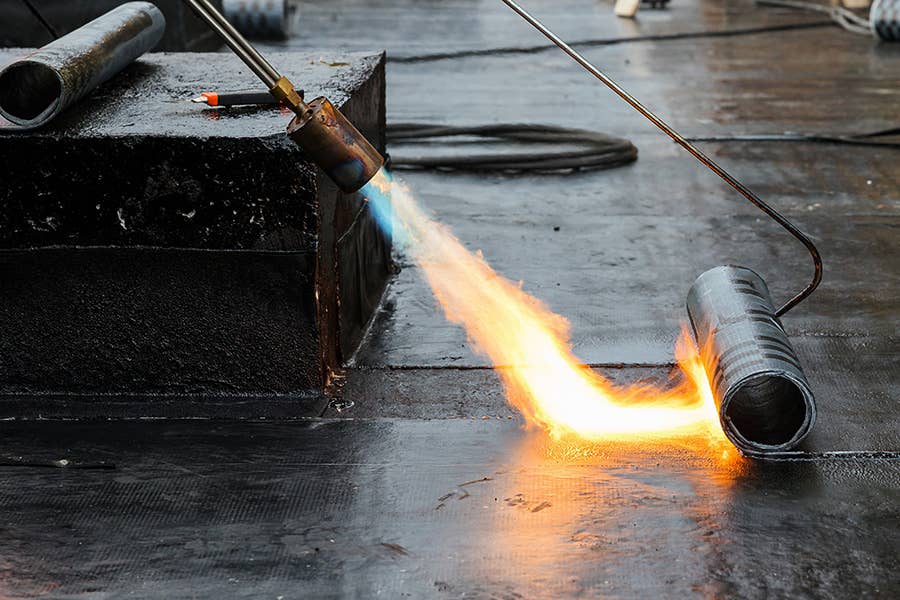
Duration 2 hours
Last audited 19th August 2025
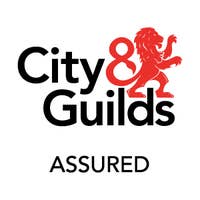
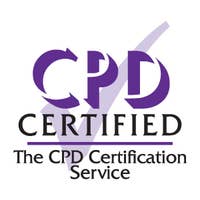


100% online training
Start when you like
Learn on any device (desktop, mobile or tablet)
Instant assessment and result
1 learner per course
Train teams of all sizes
Bulk discounts starting at 10% off 10 courses
Pay by invoice with 30 day payment terms available (5+ courses)
Includes a 10% discount for 10+ courses
Hot work is any work or operation that uses or creates a flame, heat or sparks which can cause the ignition of flammable or explosive substances. There are significant health hazards and risks from hot work and it causes many workplace accidents, often resulting in fatalities or serious injuries, as well as many cases of ill-health. It also causes major fires, resulting in loss of buildings, plant and equipment.
This Hot Work course examines the different types of hot work and the risks associated with them. It also explains the legal duties on employers and duty holders, and the responsibilities employees have to ensure their safety and the safety of others. The course also discusses the steps involved in a suitable and sufficient risk assessment and the common control measures that may be used to control the risks associated with work activities.
100% online training
Access anywhere
Same day digital certificate
Printed certificate posted next working day
Full audio voiceover
Assessment retakes at no extra cost
Learn at your own pace with no completion deadlines
Written in compliance with UK legislation and guidance
Developed by qualified health and safety professionals
Accredited by CPD and assured by RoSPA Qualifications
Bulk discount for orders of 10+ courses

Save on our courses when you buy more training upfront. Lock in a better price now and access the training whenever you need to. You can mix and match any of our courses too and get the discount off your whole order.
10+ courses = 10% off
50+ courses = 20% off
100+ courses = 30% off
500+ courses = 40% off
By the end of this course, you will understand:

City & Guilds Assured
Thoroughly reviewed independently by City & Guilds learning and development experts, this course is approved as City & Guilds Assured. High Speed Training is the first e-learning provider to have online courses awarded City & Guilds Assured status.

Accredited by CPD
All of our courses are accredited by the CPD Certification Service as conforming to universally accepted Continuing Professional Development (CPD) guidelines.

Assured by RoSPA Qualifications
This course is also assured by the Royal Society for the Prevention of Accidents through their RoSPA Qualifications Assurance System, as providing up-to-date, quality and content-approved training.
Recommended renewal:
1 year
What does this mean? This certificate does not have an expiry date, however, based on industry best practice guidelines there is a recommended renewal period.
Our in-house Learning Designers develop all of our courses to give you and your learners the most engaging training possible.
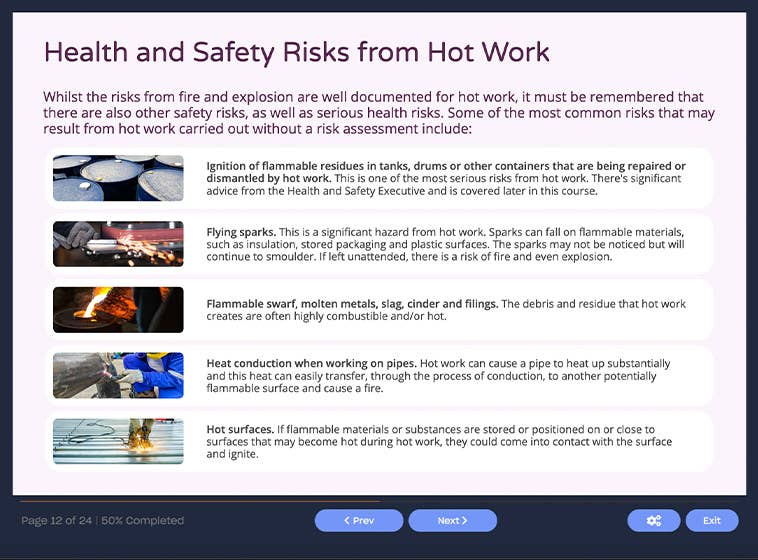
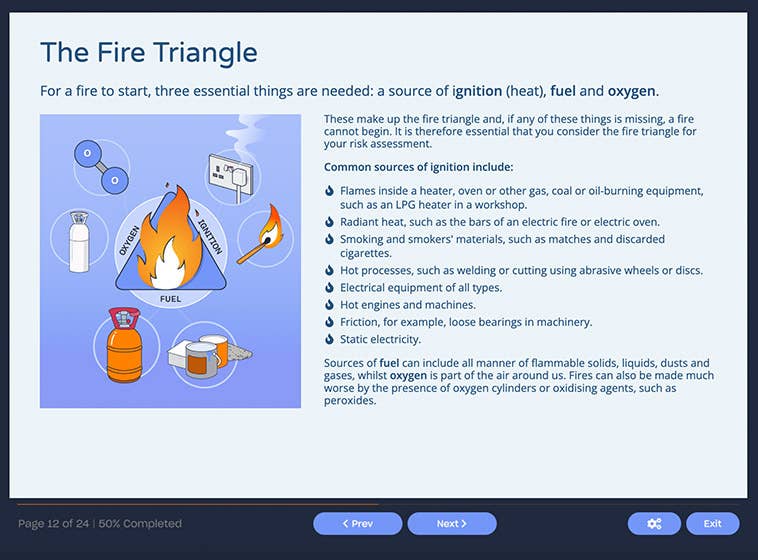
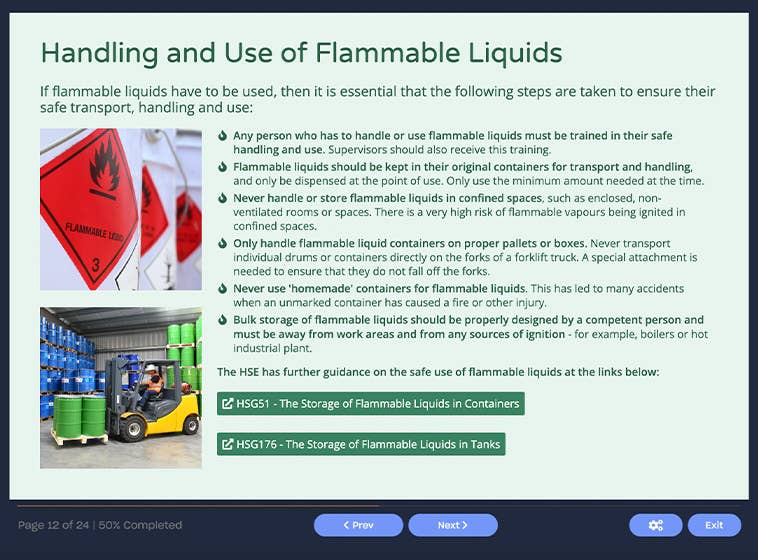
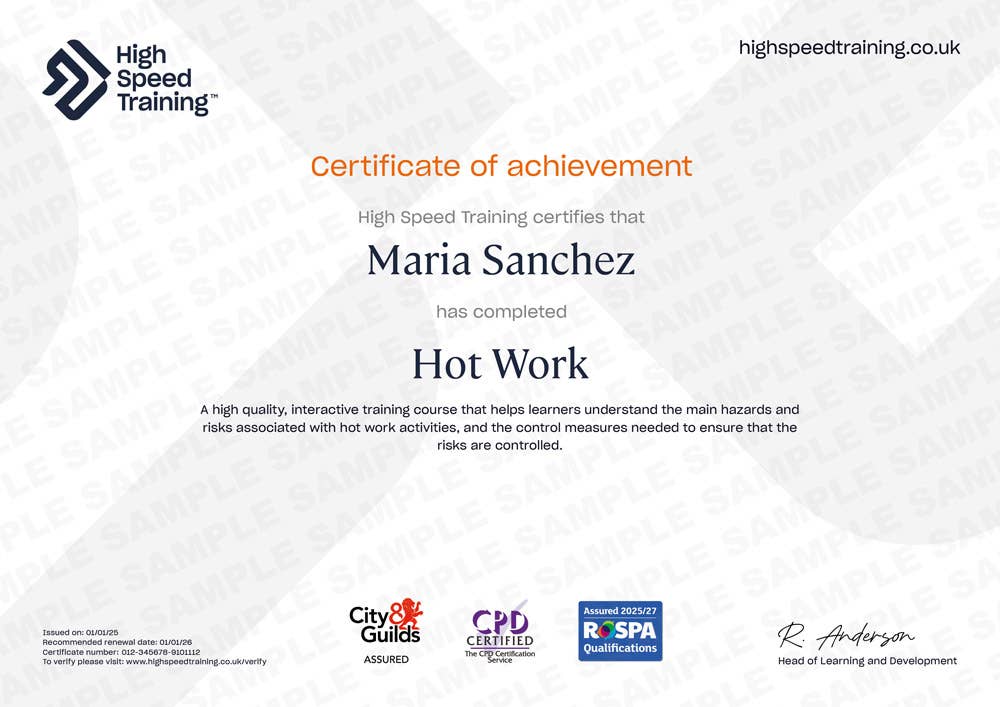




Hot work activities pose many serious risks to those carrying the work, as well as anyone in the vicinity. Hot work activities that are not properly planned and controlled can result in serious injuries and ill health, as well as fatalities. There are many instances where hot work accidents have resulted in the permanent closure of businesses, fatalities, explosions and other serious consequences.
Employers must ensure, so far as is reasonably practicable, the health, safety and welfare of their employees whilst at work - this includes the prevention and control of risks that may result from hot work. Inadequate planning and controls of hot work can have significant impacts on organisations and individuals, including injuries, ill health, fatalities, legal proceedings and loss of earnings and reputation. Part of your responsibilities as an employer involve ensuring that your employees are suitably competent to carry out their duties - this includes ensuring have any necessary information, instruction and training. This course provides comprehensive theoretical training on the risks involved with hot works and the key controls used by organisations to manage their risks.
Employees involved in hot work are at risk of causing themselves and others serious injuries and ill health if they improperly carry out hot work activities. Employers must provide their employees with suitable and sufficient information, instruction and training on their duties to ensure they can carried out their work activities safely. This course will support employers to ensure their employees have a strong understanding of the risks associated with hot work, and an awareness of the controls employers may use to manage hot work activities. When used in conjunction with suitable training on their specific work environment and activities it can support employers to ensure their employees are adequately competent in their duties.
What is hot work and where is it carried out? Types of hot work, health and safety risks from hot work, examples of flammable and explosive substances, The Health and Safety at Work (HSW), etc. Act 1974, The Management of Health and Safety at Work Regulations (MHSWR) 1999, The Dangerous Substances and Explosive Atmospheres Regulations 2002, when does DSEAR apply? Key control measures under DSEAR, employee responsibilities.
The five steps to risk assessment, key terminology, who should carry out the risk assessment? Step 1: Identify the hazards, step 2: decide who might be harmed and how, step 3: evaluate the risks and implement controls, step 4: record your findings, step 5: Review and update, the hierarchy of control and hot work permits, safe systems of work, what is a hot work permit-to-work?
General fire safety, the fire triangle, hot work in confined spaces, hot work on tanks and drums, hot work on roads, hot work on roofs, hot work involving welding and cutting, welding and cutting gas cylinders, flammable gases, safe storage, handling and use of flammable gases, handling and use of flammable liquids, petrol for powered tools and equipment, standards for petrol containers.
Health hazards and risks from hot work, safe substances for use at work, dangerous and hazardous substances, isolation of plant and machinery, safe places of work, ventilation for hot work, safe work equipment, personal protective equipment (PPE), hot work permits-to-work, training, information and instruction, supervision and monitoring of work, emergency arrangements.
The online assessment is taken on completion of the training material. You will be asked 20 multiple choice questions with a pass mark of 80%. The answers are marked automatically so you will instantly know whether you have passed. If you don't pass, don't worry! You can take the test as many times as you need with no extra charge.
This course is suitable for workers at all levels, who are involved in hot work procedures. This includes those carrying out intentional hot work, such as by using welding or flame-cutting equipment, or those who carry out activities that may generate heat or sparks by the use of machinery or power tools or from friction between surfaces, such as abrasive wheel machines or disc-cutters.

In partnership with
Neil Murray
Health and Safety Consultant
Neil Murray is a vastly experienced and highly qualified health and safety professional who has held roles such as Senior Health and Safety Executive inspector, and Principal Inspector for Channel Tunnel construction. He has also held senior roles in an international infrastructure business, a major UK water utility company and a major construction group and provided management consultancy to numerous companies across a wide range of industries.
Neil has a wide expertise in many sectors, including construction, civil engineering, manufacturing engineering, water and waste utilities, education, heritage sites, public safety, rail construction and operation, transport, marine, waste management, engineering design and industrial and facilities management services.
Neil is a QSA auditor for RoSPA and also an author of published guidance on health and safety in the construction of the Channel Tunnel, work at height, major project management, and online training courses.
All of our training is done within your web browser - there are no apps to download or software to install.
After picking the courses you need and completing your purchase, you will receive a confirmation email. To access our courses yourself or to distribute them to others you just need to click the ‘Get Started’ button within the email and select which option you want. You will then be able to add the course(s) into an existing account, or create a new account.
Of course just add the amount of courses you need and follow the purchase process. Please do be aware that it is one course per learner so they will all need their own course.
When buying courses for a team you'll also get access to our Management Suite free of charge. This is a tool that will allow you to allocate, track and review the training of your team.
Did you know? - We offer free training sessions on how to get the most from your Management Suite. To benefit from this, please contact: managersupport@highspeedtraining.co.uk to get your session booked in.
Yes, our bulk discounts are automatically applied to orders containing any combination of courses. We offer the following discounts on bulk purchases:
If you purchase 10+ courses you receive a 10% discount
If you purchase 50+ courses you receive a 20% discount
If you purchase 100+ courses you receive a 30% discount
If you purchase 500+ courses you receive a 40% discount
You can pay for our training using either a Debit or Credit card.
For companies ordering 5 or more courses, you’ll also be given the option to pay by invoice. If you would like to pay by invoice for fewer than 5 courses then please contact our Sales Team by calling 0333 006 7000 or emailing us at sales@highspeedtraining.co.uk.
Yes. You can use your username and password to log in and revisit the training material as many times as you like, even after completing the course.
No, we want our courses to work around you so there’s no time limit in which you must complete the training after making a purchase. You can also split your training over as many different sessions as you wish, as course progress is saved as you make your way through the training. You’re free to learn entirely at your own pace.